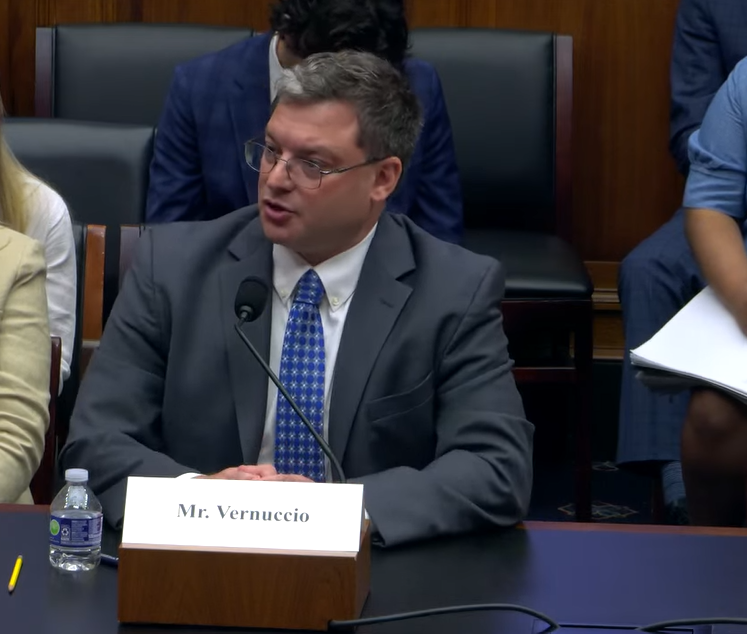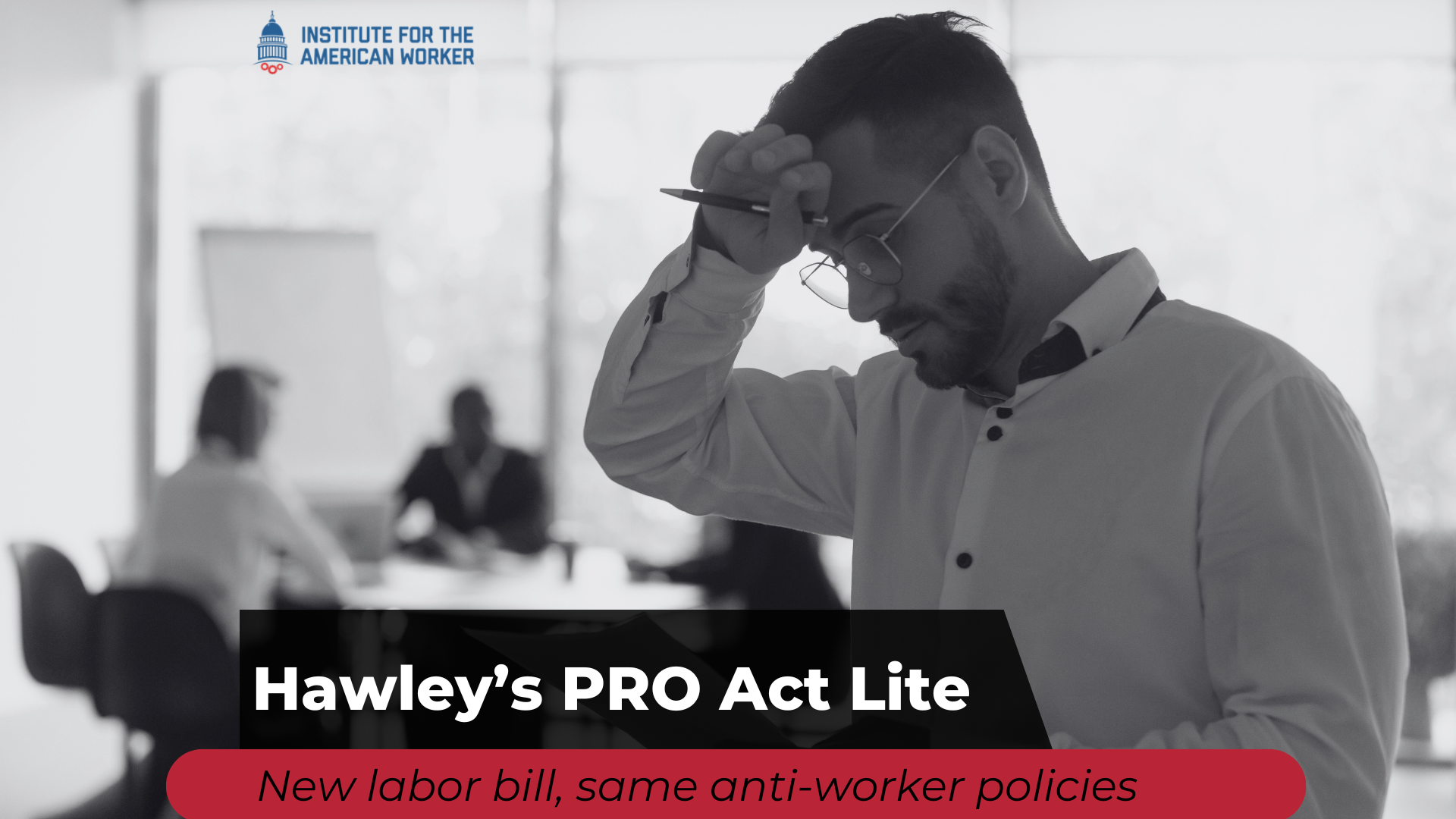Posts tagged Transparency
CBS News Digital Staffers Say Fight for Contract Improvements Continue a Year After WGA Unionization
June 20, 2025 // The unionized journalist, editors and social media producers call on management to meet “in good faith” ahead of their current last scheduled bargaining date of June 24
House Committee Debates NLRB’s Fairness and Transparency
June 18, 2025 // Also at issue was how workers vote for or against unionization. When workers select a union, said Vincent Vernuccio, president of the Institute for the American Worker, they should be allowed to make that choice “securely and privately” and “without intimidation or coercion.” He cited the “true language” of the NLRA that says a “union must be chosen by the majority of all the employees in a unit.” Vernuccio advocated for the use of secret-ballot elections in place of card check, an organizing method in which a union gathers worker signatures.

UAW watchdog faults Fain, portrays him as angry foul-mouthed leader who targeted underling
June 18, 2025 // United Auto Workers President Shawn Fain illegitimately retaliated against the second most-powerful leader of the union in stripping her of power after threatening to "slit" the "throats" of anyone who "messed" with his inner circle, a government watchdog said late Tuesday. The watchdog, lawyer Neil Barofsky, leveled the allegation in a quarterly report delivered to U.S. District Judge David Lawson, who gained broad control of a deal to oversee the UAW in 2020 following a years-long public corruption scandal. The scandal sent two former union presidents, Gary Jones and Dennis Williams, to federal prison along with several others convicted of breaking labor laws, stealing union funds and receiving bribes, kickbacks and illegal benefits from contractors and auto executives.

Hearing Recap: “Restoring Balance: Ensuring Fairness and Transparency at the NLRB” | Committee on Education & the Workforce
June 12, 2025 // Chairman Tim Walberg (R-MI) asked Mr. F. Vincent Vernuccio, President of the Institute for the American Worker about the impact of using card check rather than secret ballots during union elections. “Card check is absolutely inferior to a secret ballot election,” said Mr. Vernuccio. “The secret ballot gives [these] workers the opportunity to have a private vote where they can reflect on unionization, where there is not intimidation, where there is not coercion, and make that choice.”

Commentary: Workers Need More Transparency from Unions
June 5, 2025 // We’re not labor experts or lawyers. We’re too busy doing our day jobs. Unions should be required to disclose a lot more information. Things such as who funds unionization drives, which other unions or groups they’re affiliated with, and whether they’re paying workers to push unionization. This information could have changed the outcome at my old Trader Joe’s store. The best system would equip workers with the facts well before they’re expected to vote. If workers unionize, unions should be required to more regularly provide some of this timely information. Additionally, the Department of Labor should publish the data more often and in a more user-friendly format. For instance, at my old store, we didn’t know that the union officers would be taking salaries from the union — we only found out 18 months later, and we had never agreed to them, which upset many of my co-workers who had supported unionization.
How Today’s Young Workers Are Creating a New Opportunity for Unions
June 2, 2025 // A new survey from LaborStrong found that 77% of workers aged 18-28 believe union workplaces are better than non-union ones. More than half say unions should be tackling urgent issues like AI and automation this year — not sometime in the future. And 56% of Gen Z workers are actively seeking out unionized workplaces when considering where to work. This is not nostalgia for the labor battles of the past. It's a new generation's urgent search for collective strength in a world that feels increasingly unstable.

Vinnie Vernuccio Commentary: Trump can stop unions from tricking workers
May 4, 2025 // Unions won’t be open and transparent on their own, so Congress must step up. The SALT Act requires unions to file detailed public reports within 30 days of hiring a salt — the exact same thing that businesses have to do when they hire labor consultants. Workers deserve the transparency, accountability, and honesty that help them make a fully informed decision about whether unionization is right for them. And Trump can work with Congress to give workers this long-overdue power.

LETTER: Congress must reject proposed job-killing labor legislation
April 20, 2025 // However, a new threat to Kansas business owners has emerged in the form of a legislative framework that the Institute for the American Worker has dubbed the “PRO Act Lite,” modeled after the failed policies of Senator Bernie Sanders and other progressive lawmakers. While it may come with a new label, the substance remains the same. This proposal would drive up labor costs, stifle economic opportunity, and make it significantly harder for employers to create jobs.
Darn good policy’ George Leef on Right to Work and Rethinking Higher Education
April 20, 2025 // While acknowledging some setbacks — “Michigan being key among them” — Leef remains optimistic. “Union membership keeps shrinking. The union clout, I think, is less than it used to be,” he attests. Leef attributes this to a growing awareness among workers that, “unions don’t always represent the people they claim to; they’re oftentimes lining their own pockets.” Leef argues that labor relations were healthier before federal interference. “In our early history, people could sign up if they wanted to, or they were free to not sign up… Then the federal government stepped in and insisted that unions had some special right to represent workers,” he says.

Owens Leads Legislation to Expose Union Backroom Deals
April 17, 2025 // Amends the Labor-Management Reporting and Disclosure Act of 1959 to require labor organizations to disclose payments, loans, or financial arrangements with consultants hired to influence employees’ decisions regarding unionization. Ensures that all labor-related financial transactions, including payments made to persuade employees about collective bargaining, are fully reported to the Department of Labor. Closes reporting loopholes that have shielded labor unions from disclosing financial ties that could influence workplace organizing efforts. Directs the Secretary of Labor to issue necessary regulations within six months of the bill’s enactment.
